- Home
- Treatment
Treatment Designed for You.
Get in touch with Absolute Awakenings today and begin your journey to long-term healing & recovery. - What We Treat
Get help today, start your journey!
An Experience in Healing
Get in touch with Absolute Awakenings today and begin your journey to long-term healing & recovery. - About
The Rehab You've Been Looking For
Get in touch with Absolute Awakenings today and begin your journey to long-term healing & recovery. - Tour
- Resources
Don't Wait Another Day.
Get in touch with Absolute Awakenings today and begin your journey to long-term healing & recovery. - Admissions
The Rehab You've Been Looking For
Get in touch with Absolute Awakenings today and begin your journey to long-term healing & recovery. - Contact
(866) 627-0196
3000 NJ-10, Morris Plains, NJ 07950
admissions@absoluteawakenings.com
Schedule a Tour Now
Get in touch with Absolute Awakenings today and begin your journey to long-term healing & recovery.
Begin Your Journey Now
Begin Your Journey Now
- Home
- Treatment
Treatment Designed for You.
Get in touch with Absolute Awakenings today and begin your journey to long-term healing & recovery. - What We Treat
Get help today, start your journey!
An Experience in Healing
Get in touch with Absolute Awakenings today and begin your journey to long-term healing & recovery. - About
The Rehab You've Been Looking For
Get in touch with Absolute Awakenings today and begin your journey to long-term healing & recovery. - Tour
- Resources
Don't Wait Another Day.
Get in touch with Absolute Awakenings today and begin your journey to long-term healing & recovery. - Admissions
The Rehab You've Been Looking For
Get in touch with Absolute Awakenings today and begin your journey to long-term healing & recovery. - Contact
(866) 627-0196
3000 NJ-10, Morris Plains, NJ 07950
admissions@absoluteawakenings.com
Schedule a Tour Now
Get in touch with Absolute Awakenings today and begin your journey to long-term healing & recovery.
- Home
- What We Treat
- Mental Health
- ADD/ADHD
ADHD Treatment Center in New Jersey
Attention-Deficit/Hyperactivity Disorder(ADHD) and Addiction Treatment
Co-Occurring Disorder Treatment For Holistic Healing


Mental health disorders like ADD/ADHD add a layer of complexity to treatment and recovery that requires a more detailed, holistic approach. There are some attention deficit disorders that lend themselves to compulsive, addictive behaviors that can influence harmful medication misuse or substance abuse.
We Accept With Most Major Insurance
If you or a loved one is ready to get help but finances are holding you back, give us a call. We can work with your health insurance provider.






Related Therapies
- Dialectical Behavioral Therapy (DBT)
- Motivational Interviewing
- Acceptance and Commitment Therapy (ACT)
- Interpersonal Therapy
- Family Therapy
- Yoga Therapy
Table of Contents
Key Points
- Both ADD and ADHD are characterized by reduced levels of concentration, hyperactivity, inability to sit still or maintain focus, and a lack of impulse control.
- ADHD frequently co-occurs in those with substance use disorder (SUD), and as many as 1 in 5 adults could be diagnosed with both.
- ADHD is most common among cocaine users (14.5% to 20.5%).
- ADHD usually precedes alcohol use disorder, though official studies show that it may influence underage drinking, alcohol abuse, or behavioral problems.
- Multifaceted, holistic treatment is the most effective solution for addressing both ADHD and SUD concerns.
Treating ADD, ADHD, and Addiction
Brain function and structure, particularly the frontal lobe, influence how you interact with your surroundings. ADD (Attention Deficit Disorder) and its more inclusive cousin, ADHD (Attention Deficit Hyperactivity Disorder), represent a category of mental health disorders that are widely common among adults and youth today.
Both disorders are characterized by reduced levels of concentration, hyperactivity, inability to sit still or maintain focus, and a lack of impulse control. When studied under the lens of addiction and substance use, these characteristics can become dangerously problematic and may lead to undesirable habits.
Therapeutic strategies, both pharmacological and psychological, for both disorders, must be applied when treating co-occurring ADHD and substance abuse.
Attention Deficit Disorder (ADD) vs. Attention Deficit Hyperactivity Disorder (ADHD): Definitions and Differences
Attention Deficit Disorder (ADD) is the original term included in older versions of the Diagnostic and Statistical Manual of Mental Disorders (DSM) based on the studies and research available at the time. Today, the current version of this manual, the DSM-5, Attention Deficit Hyperactivity Disorder (ADHD) is included with specific subcategories to further define its characteristics: [1]
- Predominantly inattentive
- Predominantly hyperactive-impulsive
- Combined
Additionally, types of ADHD symptoms, age the symptoms began, extent, impairment, and exclusions are all clinical criteria for identifying ADHD and determining your quality of life. Due to the struggles with reduced impulse control and inhibited concentration, any form of substance use can become problematic. [2]
Over the course of one five-year period (including the recent pandemic), the Centers for Disease Control and Prevention (CDC) reported increased prescription fills for stimulants (like Adderall) used to treat ADHD. This mental health condition is usually diagnosed in children and teens but is trending upward for adulthood diagnoses, which can increase the likelihood and scope of co-occurring substance use.[3]
ADD/ADHD and Addiction Statistics
ADHD frequently co-occurs in those with substance use disorder (SUD), and as many as 1 in 5 adults could be diagnosed with both. Studies show that those with ADHD are at increased risk of developing an SUD or alcohol use disorder (AUD). The cause for this is officially unknown but believed to be related to self-medication and symptom relief.[4]
Current data from 2023 suggests that ADHD is present in more than 23% of those who suffer from SUD. Data on the other side of the equation also reveals that being addicted to different substances can increase the prevalence of ADHD, which can be found in almost every SUD population.[5] The following is a list that depicts the varying prevalence of ADHD among different substance use disorder sufferers:[6]
- ADHD is present in 14.5% to 20.5% of cocaine users
- ADHD is present in 7% and 62% of alcohol use disorder sufferers
- ADHD is present in 16.8% of opioid users
What Addiction and ADD/ADHD Looks Like
Some symptoms of ADHD often present as inattention and impulsivity (most severe in childhood), leading to long-term impaired function in many areas of life, from work and school to social interactions and relationships.[7] When combined with the aftermath of substance abuse, the physical and psychological impact of dealing with both disorders can decrease the quality of life exponentially.
Symptoms of ADD and/or ADHD
While everyone’s experience will be unique, and symptoms can vary slightly in degree and scope, these are the hallmark indicators of ADD/ADHD:[8]
- Impulsivity
- Disorganization
- Difficulty prioritizing
- Unable to effectively manage time
- Difficulty staying focused
- Inability to multitask
- Restlessness
- Poor planning skills
- Easily frustrated
- Moodiness or hot temper
- Difficulty completing tasks
- Unable to cope with stress
Signs of Addiction
Depending on the substance in question, the signs and behavior patterns of substance use may vary. However, many are consistent across multiple substances and play a role in diagnosing substance use disorder.[9]
- Urges to use substances every day or multiple times a day
- Distracted by thoughts of or being chronically preoccupied with obtaining the substance
- Requiring higher doses to feel the same intensity of effects
- Taking more doses more frequently or for longer than intended
- Losing money to constantly refill your supply
- Inability to meet daily work, home, or academic obligations
- Ignoring the life, financial, social, and career consequences of continued use
- Acting out of character or illegally to obtain the substance
- Engaging in risky or life-threatening behavior due to substance use (risky sexual behavior, driving while under the influence, etc.)
- Repeated failed efforts to quit on your own or going through symptoms of withdrawal when you do
ADHD And Opioid Addiction
In an official study conducted by a global psychiatry group, more than 18% of the patients in an inpatient treatment setting presented with opioid use disorder (OUD) and were also screened and determined to have adult ADHD. They also found that those who began taking opioids at a younger age had a higher likelihood of screening positive for ADHD.[10]
ADHD and Alcohol Abuse
Childhood ADHD usually precedes alcohol use disorder, though official studies show that it may influence underage drinking, alcohol abuse, or behavioral problems. Additionally, it was noted that the foray into alcohol use and abuse was more rapid for those with ADHD than for those without. Due to this potential progression, it’s important that treatment targets both challenges in order to facilitate positive outcomes. [11]
Treatment Strategies For Co-Occurring ADHD And Substance Use Disorders
Administering a low-dose stimulant medication only for ADHD could prove problematic for someone with a SUD. By the same token, putting someone with both disorders through detox and sending them on their way will prove to be ineffective. Co-occurring disorder treatment requires a multifaceted approach that comprehensively addresses the holistic needs of every patient.
- Partial Care Program: Similar in intensity, treatment, and care to inpatient care, Partial Care offers more flexibility and the freedom to sleep off-site while still receiving daily treatment.
- Intensive Outpatient Program: Over several days a week for several hours a day, patients will participate in treatment and therapy while still managing daily responsibilities.
- Outpatient Treatment Program: After more intensive levels of care are complete, patients will attend treatment weekly or as needed to continue their recovery.
- Dual Diagnosis Treatment: Another term for co-occurring disorder treatment, dual diagnosis programs focus on a two-pronged approach to treating mental health and SUD disorders together.
- Trauma Informed Care Program: Traumatic experiences can influence much of what we do in life. By holding space for the past in every treatment, patients will be more completely supported throughout the recovery process.
- Recovery Capital: Developing recovery capital is essential to long-term sobriety. By giving back to the community, building sober relationships, and investing in yourself and your relationships, you develop a deeper motivation to stay the course.

Amanda Stevens, BS
Medical Content Writer
Amanda Stevens is a highly respected figure in the field of medical content writing, with a specific focus on eating disorders and addiction treatment. Amanda earned a Bachelor of Science degree in Social Work from Purdue University, graduating Magna Cum Laude, which serves as a strong educational foundation for her contributions.
Absolute Awakenings Editorial Guidelines
At Absolute Awakenings, we take information integrity seriously. We have dedicated our resources to ensure that all content published to our blog is medically sound. As such, all content on our blog has been thoroughly reviewed by a doctorate level clinician such as a Medical Doctor, or Psy.D, so that you can trust all of the data we publish.
We Accept With Most Major Insurance
If you or a loved one is ready to get help but finances are holding you back, give us a call. We can work with your health insurance provider.






Related Topics
- Dialectical Behavioral Therapy (DBT)
- Motivational Interviewing
- Acceptance and Commitment Therapy (ACT)
- Interpersonal Therapy
- Family Therapy
- Yoga Therapy
Our Team is standy by 24/7
Get The Help You Need To Focus, Heal, and Restore Balance In Your Life
We can help you take that first step toward a lifetime of sobriety and clarity, without relying on harmful substances. Contact us today to learn more.
Frequently Asked Questions About ADD and Addiction
Can you live a normal life with ADD?
Absolutely! With the right interventions for you, be it medication, therapy, and coping skill development, you can improve your quality of life even while experiencing ADD or ADHD.
Is addiction a mental disorder?
Yes, officially, substance addictions are classified as Substance Use Disorders based on the criteria mentioned above and laid out in the Diagnostic and Statistical Manual of Mental Disorders (DSM-5).
Does ADD make you more prone to addiction?
Yes, this is possible. While direct causality is difficult to prove, in some ways, it can put you at increased risk of developing habits that lead to substance dependence or substance use disorder.
Sources
[1]Epstein, J. N., & Loren, R. E. A. (2013, October 1). Changes in the definition of ADHD in DSM-5: Subtle but important. Neuropsychiatry. Retrieved from https://www.ncbi.nlm.nih.gov/pmc/articles/PMC3955126/ on August 24, 2023
[2][3]Centers for Disease Control and Prevention. (2023b, March 30). Trends in stimulant prescription fills among commercially insured children and adults – United States, 2016–2021. Centers for Disease Control and Prevention. Retrieved from https://www.cdc.gov/mmwr/volumes/72/wr/mm7213a1.htm?s_cid=mm7213a1_w on August 24, 2023
4][5][6][7]Rohner, H., Gaspar, N., Philipsen, A., & Schulze, M. (2023, January 10). Prevalence of attention deficit hyperactivity disorder (ADHD) among substance use disorder (SUD) populations: Meta-analysis. International journal of environmental research and public health. Retrieved from https://www.ncbi.nlm.nih.gov/pmc/articles/PMC9859173/ on August 24, 2023
[8]Mayo Foundation for Medical Education and Research. (2023, January 25). Adult attention-deficit/hyperactivity disorder (ADHD). Mayo Clinic. Retrieved from https://www.mayoclinic.org/diseases-conditions/adult-adhd/symptoms-causes/syc-20350878 on August 24, 2023
[9]Mayo Foundation for Medical Education and Research. (2022, October 4). Drug addiction (substance use disorder). Mayo Clinic. Retrieved from https://www.mayoclinic.org/diseases-conditions/drug-addiction/symptoms-causes/syc-20365112 on August 24, 2023
[10]Gupta, S., Bhatia, G., Sarkar, S., Chatterjee, B., Balhara, Y. P. S., & Dhawan, A. (2020). Adult attention-deficit hyperactivity disorders and its correlates in patients with opioid dependence: An exploratory study. Indian journal of psychiatry. Retrieved from https://www.ncbi.nlm.nih.gov/pmc/articles/PMC7909024/ on August 24, 2023
[11]Smith, B. H., Molina, B. S. G., & Pelham, W. E. (2002). The clinically meaningful link between alcohol use and attention deficit hyperactivity disorder. Alcohol Research & Health. Retrieved from https://www.ncbi.nlm.nih.gov/pmc/articles/PMC6683828/ on August 24, 2023
Stories of Hope & Healing
Hear from Our Alumni
A jewel among many local drug and alcohol rehab treatment centers in Denville, New Jersey, the care and treatment options you’ll receive at Absolute Awakenings is second to none. From not knowing if you’ll ever feel in control again to being confident in the path you’re on, we are invested in YOU every step of the way.
Begin Your Journey to Long-Term Healing
Make the Call. Change Your Life.
Yes, You Can Get Your Life Back...
With our trained and compassionate professionals in your corner, freedom can be yours. All it takes is you choose yourself. Choosing a better tomorrow.
© Copyright 2025. All Rights Reserved. AATC.
- Terms & Conditions
- Privacy Policy


